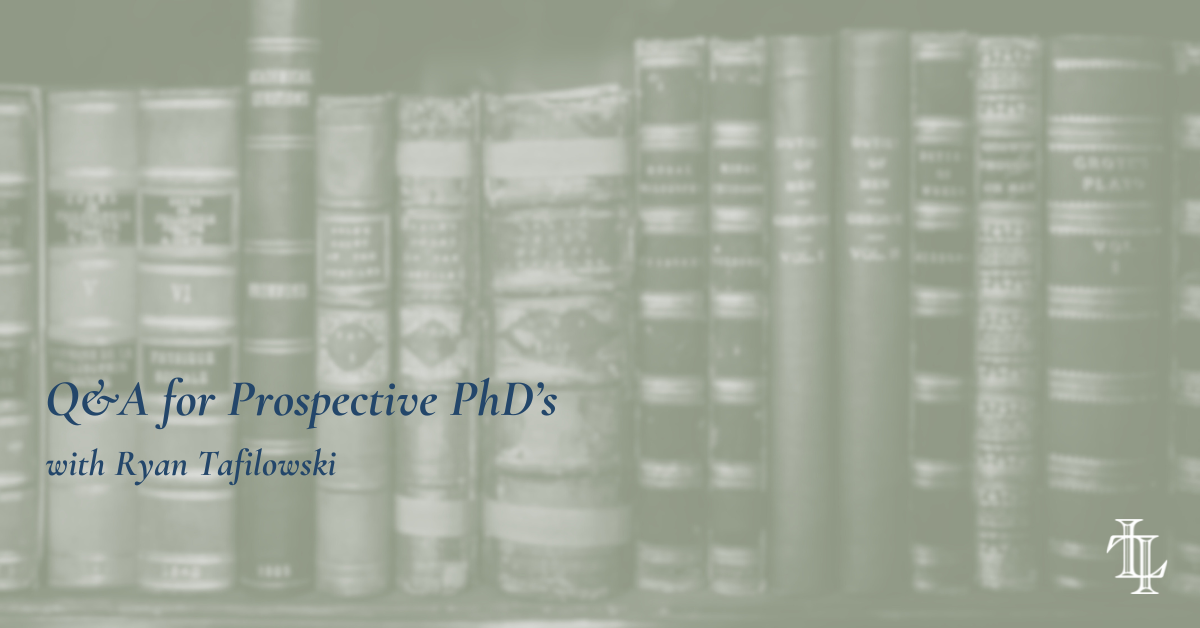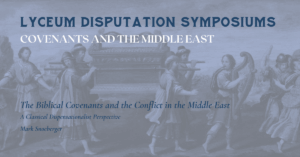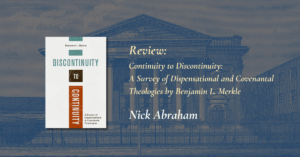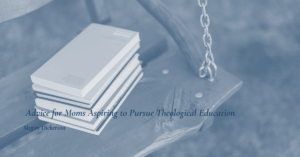Editor’s Note: For the next few weeks, the Ledger will feature articles from current professors in academia offering advice to prospective PhD students considering doctoral work. Each article will be followed by a critical book review on one of the books that the professor recommends that every PhD student should read. The LL team hopes this series will provide answers to common questions that aspiring PhD students have when considering taking the next step in their theological education.
How did you enter into ministry in the academy/desire to pursue a PhD?
Even as a teenager I had this sense that my intellectual curiosity was somehow meant to be connected to the life of the church. I didn’t know what it meant then, but I felt a sort of call to the vocation of a scholar who might also serve in the church. I just put one foot in front of the other as my theological education progressed, and now I find myself working at the intersection of the church and the academy. So, I set out to train for a career in the academy, but I didn’t know what I didn’t know. There was a lot of stumbling around as I found my way: narrowing in on a field of study, determining what programs might be the best fit, considering whether I was willing to move, reaching out to potential supervisors, and scouring high and low for grants and scholarships to fund the research. My key recommendation to aspiring doctoral students is to make contact with several scholars who could potentially supervise the project. In my experience, most are very happy to review research proposals and offer helpful feedback. The scholar who ended up supervising my PhD, Professor Hannah Holtschneider, was invaluable in helping me narrow and clarify my research question as I was applying to the program. It’s helpful to remember that these scholars are “theologian famous,” not “famous famous,” and they are always looking to work with promising students.
How is educational ministry indeed a ministry that can serve the church?
It’s always been interesting to me that, in Ephesians 4, Paul distinguishes the spiritual gift of teaching from other gifts and offices that we might think of as related (apostles and shepherds), which suggests that some members of Christ’s body are uniquely suited—in terms of spiritual gifting, interest, and aptitude—to study and teach the things of God. It’s not for nothing that Calvin argues that the teacher/theologian ought to be considered a distinct office of the church. Calvin was onto something: if they approach the task in a posture of humility and with the ambition to edify the body, scholars, teachers, and theologians bring something unique to the people of God. They have the ability to think deeply about the Scriptures and to search both the Scriptures and the Christian tradition to help God’s flock negotiate complex and perplexing issues that the biblical writers themselves did not quite foresee, from IVF to iPhones.
How did you develop your research interests?
Almost completely by accident. Until recently, the majority of my scholarly work has been in 19th and 20th century Germany, with particular attention to the so-called German “church struggle” during the Nazi years. I read Bonhoeffer’s The Cost of Discipleship as an undergraduate, and it totally rocked my world. I was obsessed—I wanted to know everything I could about the life and times of Bonhoeffer. So, I resolved to write my PhD dissertation on him. It was a good idea … so good that everyone else in the universe had the same one. The scholar who ended up supervising my thesis, Professor Hannah Holtschneider, suggested that I take a look at the “bad guys” of the church struggle, so I ended up researching a constellation of Lutheran theologians with varying degrees of sympathy and entanglement with Nazism. It ended up being an amazing experience; I learned a lot about the church’s witness in fraught political contexts—all by accident.
Tell us about your publications and current research.
I’m definitely still interested in modern Protestant theology, particularly in Germany, but in recent years I’ve been working a good deal in public theology, with specific interest in the theology of work. My most recent major project was a collaborative venture with a colleague of mine, David Buschart: Worth Doing: Fallenness, Finitude, and Work in the Real World (IVP Academic, 2025). It’s an attempt to situate a theological account of work in a robust understanding of finitude, stressing our God-given limitations, and in the painful realities of the fall, which mar the conditions under which we all take up our daily work. I’m interested in trying to furnish God’s people with a theology of work which is both realistic and hopeful, since work is where most of us spend most of our time. It’s critical for discipleship that we think theologically about it.
What advice do you have for beginning PhD students or students who desire to research and write well?
I’ll offer two pieces of advice, one more philosophical and one more practical. On the philosophical side, I’ll draw on my own experience to warn against what the theologian Helmut Thielicke called “theological puberty.” He’s describing a kind of intellectual hubris which is typical of teenagers, who think they know much more than they do. It’s also typical of graduate students, characterized, outwardly anyway, as bravado and confidence, but is actually born of insecurity. Imposter syndrome is inevitable when undertaking graduate-level work, but the best antidote is genuine humility, not false confidence. On the practical side, I’ll share some advice that I often give aspiring PhD students in theology. It’s of course important to read as much as you can in the scholarly debates which are especially germane to your discipline/research question, but I advise students to read as widely as they can in the broader Christian tradition, East and West. One good way to do this is to read “classics”—the sorts of patristic, medieval, Reformation, and modern texts that continue shape the Christian imagination. Especially if you have designs on teaching theology in a college or seminary, you’ll need to handle a lot of topics which are outside your immediate expertise, so a wide acquaintance with the tradition will make you a better teacher.
What excites you about your field?
There is a lot that I could say here. Although my research has mainly been in historical theology (with focus on the 19thand 20th centuries), I also teach a seminar in theological method, in which we cover contemporary theological trends. I am particularly excited about the resurgence of theological interpretation of Scripture which has been unfolding over the last couple of decades but is really flourishing at the moment. There are a lot of good scholars producing interesting academic work which, critically, also has profound implications for the practice of ministry. Specifically, increased attention to pre-modern exegetical techniques holds great promise, I think, for helping the church to recover the Bible as its own (and not just the property of professional scholars). I do not at all mean to denigrate the merits and contributions of a grammatical-historical approach to Scripture, but distinctly and unapologetically theological approaches to Scripture deserve a seat at the table, too. Since I also serve as a pastor alongside my work as a professor, I welcome this retrieval of pre-critical exegesis which emphasizes that the Bible is the Word of God for the people of God as a decisive element of formation and discipleship.
What is one book that you wish every PhD student in your field would read?
This is perhaps not the most natural response from a modern specialist and Baptist minister, but I’ll construe the question broadly and recommend Gregory the Great’s Book of Pastoral Rule, a handbook for clergy dating to the end of the sixth century. Anyone training for ministry of any kind, including the ministry of a scholar or teacher, should read this book, which is both sobering in its directness about the perils and pitfalls of pastoral work—including our pernicious capacities for self-deception and pride—as well as the grave burdens involved in shepherding God’s people. Gregory pulls no punches about the difficulty of pastoring, but he also manages to convey the glorious privilege of serving the bride of Jesus Christ.
Author
-
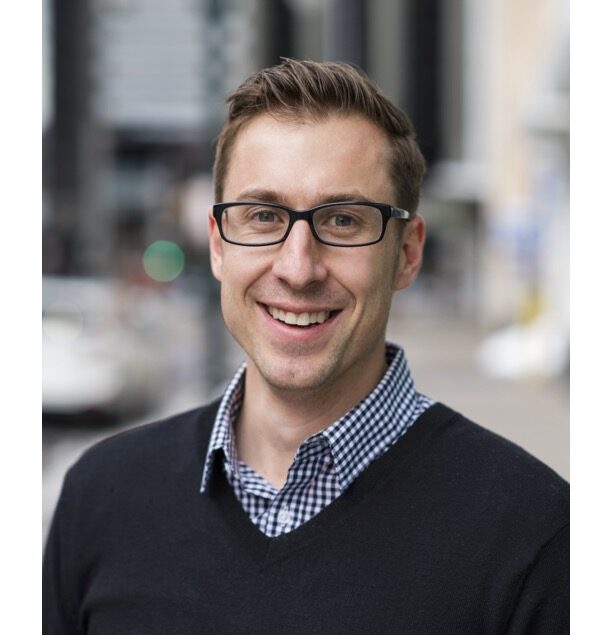
Ryan Tafilowski (PhD University of Edinburgh) is Assistant Professor of Theology at Denver Seminary and Lead Pastor of Foothills Fellowship Church in Littleton, Colorado. He is the author of numerous books and articles. His most recent book, co-authored with W. David Buschart, is Worth Doing: Fallenness, Finitude, and Work in the Real World (IVP Academic, 2025).
View all postsRecent Posts
